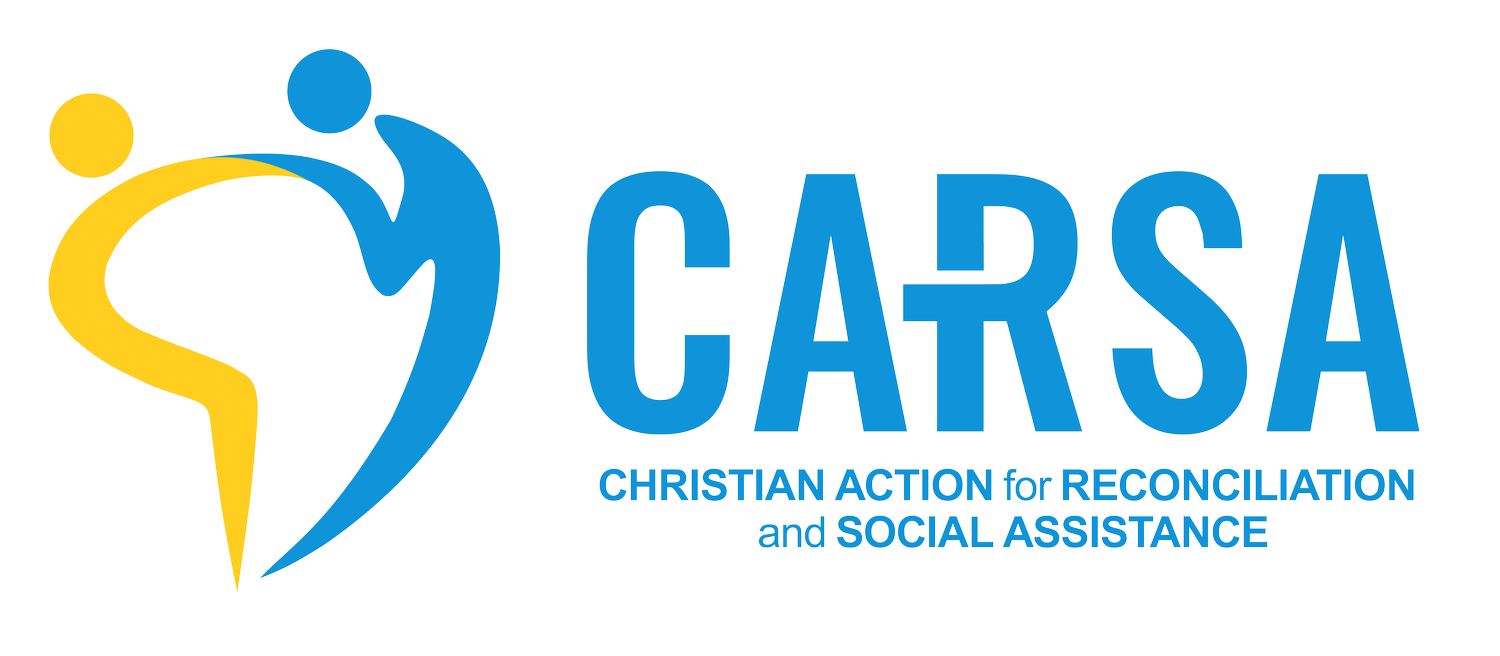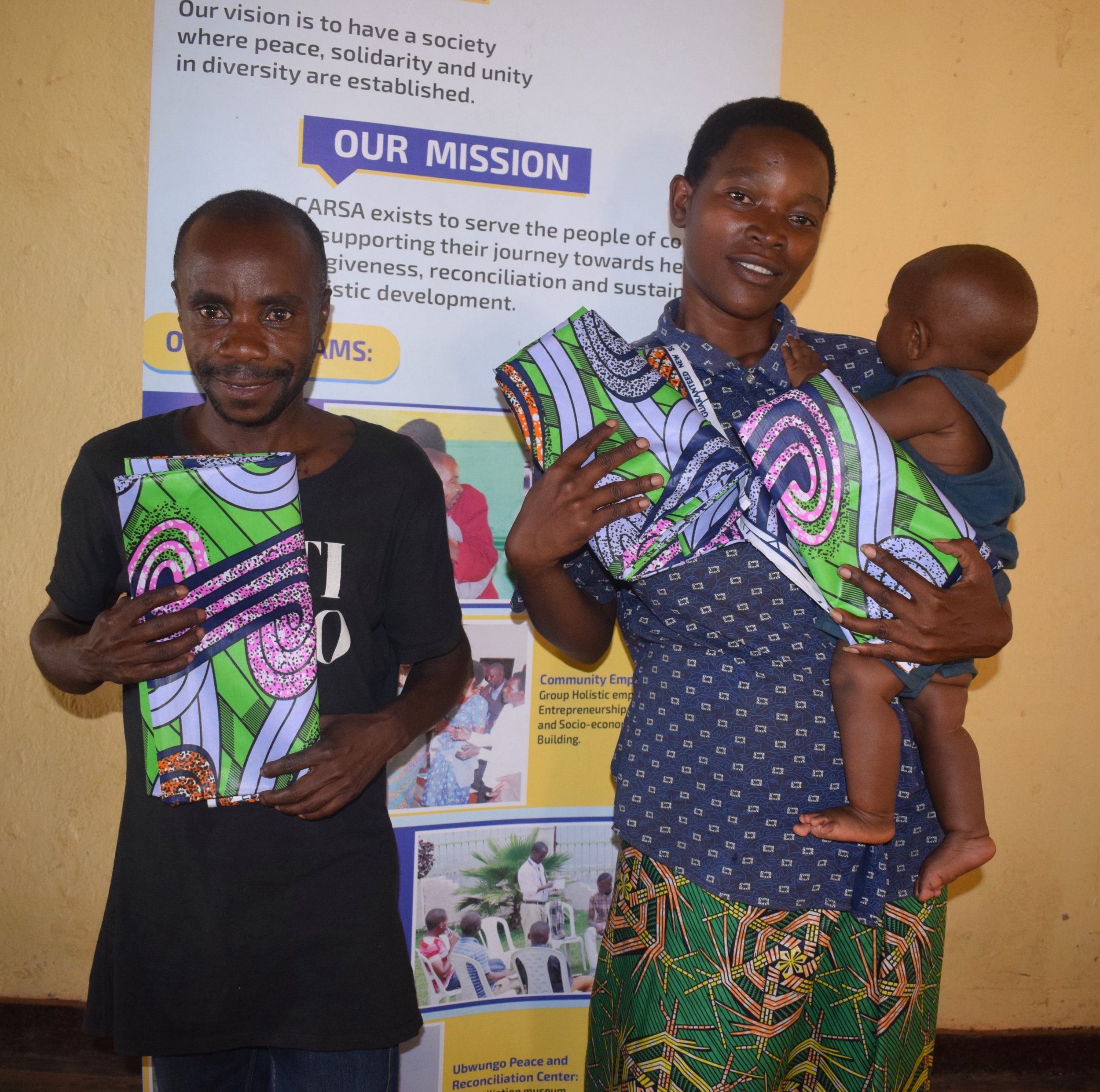From Extreme Poverty to Empowerment: In Mugina sector, CARSA works alongside the vulnerable community formerly considered historically Marginalized Community
A new hope is emerging in the Mugina, Kamonyi district, Rwanda. The historically marginalized People formally known as Batwa people, are finding new ways to boast a sense of dignity and belonging as well as improve life conditions, and build a sustainable future.
Throughout the whole process of working with this community, CARSA focuses on challenging their mindsets and showing them how their thinking and beliefs are the core to contribute or hinder their development. The aim is to empower them, breaking the spirit of inferiority mindset and seclusion. Since the first contact, the relationship of trust has been growing between this community and CARSA, and that enabled some of them to discover their worth and potential. They started regarding themselves as equal people in the social economic development journey instead of staying in the state of historically marginalized. This has been an essential foundation for all further work.
Art of is changing the mindset and cultivating self-confidence
Gifted and talented with pottery abilities, in the past, historically marginalized people were considered only to make a living from their cheap pots. Their poor conditions were obvious and were very hopeless.
To empower this community, CARSA launched complex and holistic interventions that target all aspects of life in this community. The intervention focused on the social, spiritual, psychological, and economic aspects. Firstly, CARSA created a space where 300 people from this community meet regularly for worship, discuss their emergency issues, and do savings at the end of the meeting. In only two years of operation, the space significantly improved a sense of self-reliance and independence among the people of Mugina as they knew how to sort out their problems themselves. Our last attendance showed that over 100 people permanently attended saving group activities and had over Rwf150,000 shareable savings bank accounts, and few families were able to pay for health insurance (Mutuelle de santé) themselves for the first time.
For now, mindset change is taking place and when you meet them, they have hope. They no longer depend on begging, and just like other members of society, they wake up every morning for different economic activities and apply their acquired vocational skills to generate income.
Kamana Jean Baptiste is among historically marginalized people who are in the process of improving life standards with the support of CARSA. He currently serves as the head of the village sub-unit (Isibo) in Murambi Village.
“It was rare to find people entrust a person from historically marginalized people, but they did it to me, meaning they saw something special in me. I thank CARSA for shaping me into a leader,” Jean Baptiste said.
Jean-Baptiste added that” CARSA support is beyond the tangible things like money, food, etc. CARSA never gave us a fish but guided us on how to fish. I found that other people called us marginalized because we have bad mindsets or misbehaviors. If we continue to follow the CARSA teachings, leave out the unnecessary conflict, and be self-reliant, we will find our place in society.”
Living in purposeful life: Empower workshop
CARSA conducts different trainings to build the capacity of this community. In September, the ministry organized a 7-day Empower Workshop in Mugina that brought together 36 leaders from the Mugina community to keep enhancing an atmosphere of self-dignity and raise awareness about issues affecting them. The workshop equipped them with skills to improve intra-family communication, cultivate the habit of saving, and set personal and family development goals.
Nyandwi Jean Bosco and his wife attended this workshop. They came to the workshop as a couple, but their hearts were separated because their family was shattered by conflict and extreme poverty. The workshop was a blessing to them as it reunited the family, and they went back home intending to work together for their relationship and life status. “I participated in many trainings, but this workshop is special as I know that living in harmony with my wife and surroundings is essential. I have a goal of increasing my savings so that I can buy a cow by next year. The journey to the cow started this week because I was able to buy 4 rabbits.” Jean Bosco strongly shared that while standing with his wife.
Mindset Change; A Path to Economic Independence
In the past, this community faced some sort of marginalization from other communities. Today, the community continues to face significant poverty challenges affecting their access to education, high unemployment, and social exclusion. With around 75% of Rwandans earning their income from agriculture, this community is still relying on their age-old tradition of ceramic production. However, without modern skills and resources, they struggle to compete in Rwanda’s economy.
Recognizing these challenges, CARSA has focused on creating sustainable livelihoods through education, training, and empowerment. Their latest initiative is the financing of a cooperative in the form of a loan of pottery (making burnt bricks). The initiative is not just about economic survival; it’s about restoring dignity and providing this community with the tools to be self-reliant.
The financed cooperative is TUJIJURANE (a group of people with the mission of fighting illiteracy), with the needed capital to make the burnt bricks. So far, they have done with the first batch of bricks (70,000 bricks) and have started touching money from selling those bricks.
According to Ruseriyende Francois, historically marginalized people have been enlightened on the benefits of working together in groups, where they have helped them stay united and earn a living. He sees this journey of working together as a sign to achieve more, especially when they have effective supporters like CARSA.
“CARSA came at the right time because we did not have any occupation, and they started to gather us through this group. Even making all 70,000 you’re seeing didn’t cost a lot as we’re united. Now, the bricks are ready, and builders are welcome to pick them up. We will get approximately over 2 million, one part will go to pay the loan and re-investing, and the other one to sort out our emergency issues.”
“Thank you, CARSA, for showing us the way to prosperity and work for our financial independence. We will stay working hard and together to ensure a decent life for other segments of the population.” He added.
Towards a Brighter Future
The Mugina project is more than just an economic initiative; it’s a step towards social transformation. Almost 30 years after the genocide, Rwanda continues to rebuild, and inclusion is key to this process. By integrating this community into the national social economy goal, the project contributes to Rwanda’s National Strategy for Transformation. It diversifies job opportunities, reduces poverty, and strengthens the social fabric of the nation; it’s shaping a new narrative for the community, one that is rooted in resilience, creativity, and hope.







